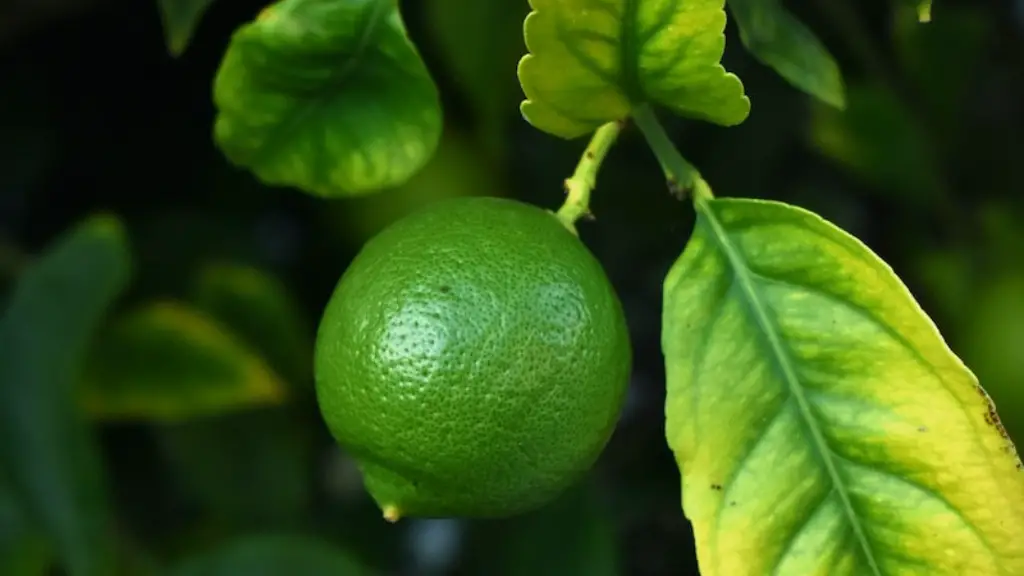Preventive Methods for Killing Ants on Lemon Tree
Unlike flying insects and ants, lemon tree ants are harder to eradicate. The first and foremost technique to prevent future infestation is to create a boundary around the lemon tree by making it difficult for the ants to climb the tree. For this, you can sprinkle a mixture of cayenne pepper and some kind of liquid to the even surface around the tree. This creates a barrier that ants cannot cross.
Using bait traps like sticky traps or spoons of liquid detergent mixed with honey also helps to get rid of ants. Honey attracts ants and detergent works as an insecticide. Place them around the tree and the ants will try to take it back to the nest and eventually, the whole colony will get wiped out.
Another preventive step is to introduce natural predators of ants like birds, lizards near the lemon tree. Birds, apart from being effective in catching and eating ants, can also have the additional benefit of pollinating your lemon tree. Additionally, you can also disturb their nest by keeping the surface around your lemon tree dry. Ants, unlike other pests, require the moist surface to make tunnels in which they move and build a nest. Keep the surface around the tree dry and they will search for another moist location to shift their nests.
If you want to use an insecticide to get rid of ants from your lemon tree, you can go for ‘ready-to-use’ products. These products contain active ingredients like bifenthrin, permethrin and ortho that can be sprayed directly on the tree, and are effective at repelling and killing ants.
Alternatively, you can also use homemade insecticides by mixing natural ingredients like vinegar, soap, chili powder, and oil. Create the mixture and spray it around the lemon tree and on the ants directly. This acts as a natural insecticide and prevents ants from coming near your lemon tree.
Targeting Existing Infestations
Though it is not ideal, if you are facing an existing ant infestation, you can use poisonous substances like baits and other insecticides to get rid of them. If you want to use baits, choose non-reusable baits like granules or bait gels which contain active ingredients like fipronil and abamectin. Place them in ant trails or near ant hills. This will kill the pests quickly.
You can also use sprays like aerosol sprays, dusts, and liquids which have active ingredients like Cypermethrin or pyrethrin in them. These are deadly for ants and directly applied to the trails and hills. In some cases, spraying these substances on the body can also eliminate ants. However, doing so can sometimes also irritate plants. So, it is better to use it as your last resort.
Another method to get rid of ants from your lemon tree is to use an ant baiting system. It is a combination of bait and an insecticide-treated station. It attracts the ants and when they feed on the bait, it kills them by releasing the insecticides.
Also, if you find ant hills near the trunk, you can pour boiling water in them. Then manipulate the surface with a rake or a hoe. This kills the ants and destroys their nests. Since this method is messy and extensive, it is better to try it just once in a while.
Manual Removal
Whenever you see ants in your lemon tree, you can manually remove them using a vacuum cleaner. This is an easy yet non-toxic way of getting rid of the ants. Just make sure to vacuum the surrounding area in and around the lemon tree to remove any food particles that can draw ants to it.
Additionally, you can use a water hose to blast away the small ants from the tree. Make sure that the force or pressure is not too strong as it can damage the underlying bark of the tree. However, this method is not effective if there are too many ants. It may take multiple rounds in order to completely get rid of them.
What Type of Foods Attract Ants?
Ants are attracted to sweet, sugary and protein-rich foods. This means foods like honey, candy, fruits, cooked pasta, and other sticky substances. Additionally, ants also feed on food that is washed away in the rain. This is why it is essential to keep a check on what food is left near the lemon tree.
Also, make sure the tree is clean and no food particles are rotting near it. Keeping the lemon tree and its surroundings clean can effectively help in preventing ant infestation. Additionally, creating artificial nests like wood bark pieces, coconut shells and bamboo pipes can also attract and provide shelter to birds that feed on ants.
Eliminating Simultaneously Recurring Ants
Sometimes, ants come back to a location even if you have tried all the methods to get rid of them. In this case, use insecticides that have a long term residual effect. These insecticides if used after the regular interval of time can have an effect on the entire colony and can stop ants from coming back for a long time.
Another way to prevent ants from recurring is to clean up their nests and trails. This includes removing dead ants and any other debris that they use to make nests and trails. Additionally, you can also use repellents to keep ants away from the lemon tree. For this, you can go for natural solutions like essential oil solutions or commercial products like pyrethrin-based repellents.
What Are the Different Types of Ants?
There are about 12,000 known species of ants around the world. Ants come in various shapes, sizes and colors and are differentiated by their morphology. The common types of ants that infest trees are Carpenter ants, pavement ants, field ants, and pharaoh ants. These ants form colonies and can be a big menace if not taken care of.
Carpenter ants are large ants that are blackish-brown in color and build complex nest structures. They prefer moist wood and can be seen near rotting wood and tree bark. Pavement ants are swift-moving ants that live and travel in sand and soil. These ants establish colonies by making burrows underground. Field ants are large ants usually black in color, that form antennae and make small mounds in the soil.
Additionally, Pharaoh ants are light yellow or yellow brown in color and are known for infesting houses and buildings. These ants like dark and moist interfaces, so they often settle in the kitchen and other joint spaces in the house.



